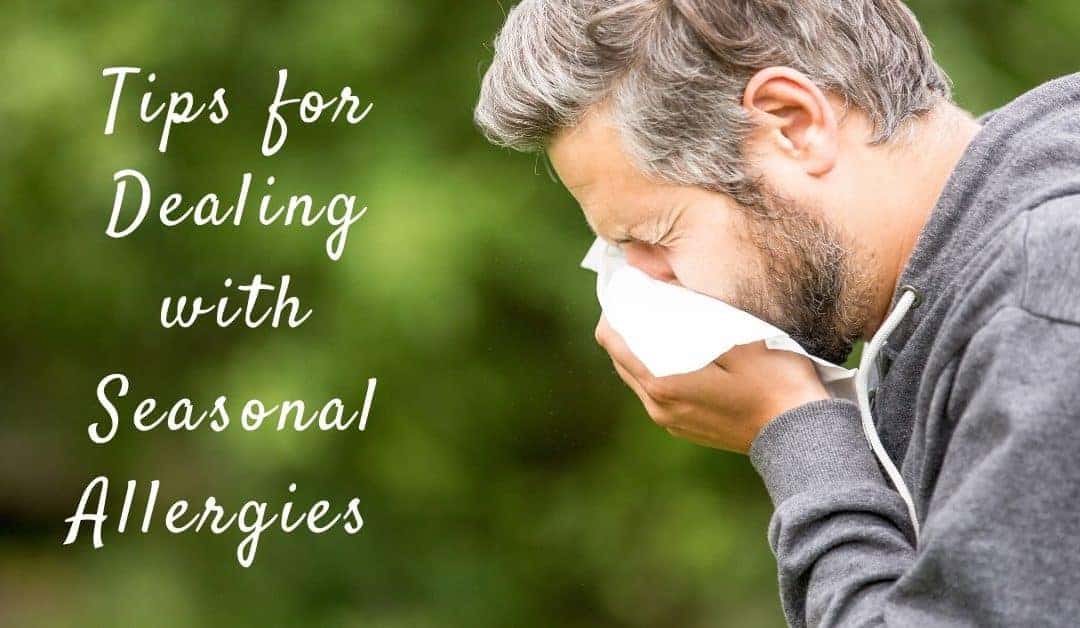If this season, your seasonal allergies are making you miserable, then you’re not alone. Each year over 50 million Americans suffer allergies. The good news is that there are measures you can take to minimize your seasonal allergy symptoms.
Where do allergies come from?
People develop allergies when the immune system of their body responds to a substance as if it is a threat like an infection, thus creating antibodies to fight it. Those substances are known as allergens.
The next time the body experiences the allergen, more anticipatory antibodies are formed, releasing histamine, the compound in the body that results in an allergic reaction. These chemicals generate symptoms typically in the body’s nose, throat, eyes, and other areas.
Runny nose, constant sneezing, sinus congestion, itchy and swollen eyes, wheezing, coughing, and fatigue are among the most common symptoms of seasonal allergies.
When do allergies occur?
Three major types of pollen usually cause seasonal allergies: trees, grass, and weeds. They are called “seasonal allergies” because every pollen type has a season in which they are most potent.
Here’s a general timeline of seasons common to pollen:
- Tree pollen season is from March through June.
- June, July, and August are usually high in grass pollen, sometimes in a warm year in September.
- Weed pollen season is from August through the end of October-it takes a hard freeze to kill off the weeds.
- In the fall months, some outdoor molds are present.
Usually, November to early February provides some relief for those suffering from seasonal allergies.
How should I treat my allergy symptoms?
Antihistamines: Try over-the-counter options such as Claritin, Allegra, or Zyrtec, and see which one works best for you.
Nasal sprays: When you find like the symptoms are primarily around your nasal passages, throw in a nasal steroid spray. It takes at least five days for these to kick in, but they will gradually help reduce inflammation in your nasal passages and reduce symptoms in your nose, sinuses, and throat.
Eyedrops: When your eyes are impaired, it is recommended that you drop an over-the-counter antihistamine eye drop to help prevent watery eyes and redness.
Inhale steam: This easy trick will help relieve a stuffy nose and make it easier to breathe. Hold your head above a warm bowl or sink filled with water and put a towel over your head to keep the steam trapped.
Avoid smoking and other smokers: Cigarette smoke can make your runny, itchy, stuffy nose, and watery eyes worse. Remove other gasses, such as aerosol sprays and smoke from wood-burning fireplaces, that can make your symptoms worse.
Schedule an appointment with an allergist: If you have tried the above and your symptoms still exist, see a professional. A specialist will help you determine whether your symptoms are allergy-related and their specific causes and devise a strategy to help you handle your symptoms more effectively.
How do I avoid future allergic reactions?
1. Clean out the house
Sweeping up the cobwebs gathered over the winter is more than just improving your home look. A deep scrub in the house can help remove existing allergens and clear the air.
It is particularly important to get rid of mold that builds up in bathrooms and basements. These are a significant allergen-especially in spring months when there is a lot of moisture.
Because your pets spent a lot of time indoors, they have likely collected loose hair, dirt, and dander. Repeated vacuuming and washing upholstery and pet beds can help.
2. Get a quality air cleaner
Despite what you may have heard, an ionic air filter isn’t the best way to clean the air in your home. The ionization changes the charge on pollen or dust particles, and the particle sticks to the next thing with which it comes into contact, often a wall or surface. However, there is typically not enough airflow to filter several particles efficiently, so ionic filters don’t offer much benefit to those suffering from allergies. There is also a risk to health that stems from the ozone they produce.
The best way to clean your indoor air is with a Clean Air Delivery Rate (CADR) rated HEPA room air cleaner. Change your air filters every three months for those with central air, and use filters with a MERV rating of 11 or 12.
Enticare
If you’re looking to improve your allergies, we look forward to hearing from you! Our team of experts is here to help you treat your allergies so you can enjoy this season with ease.

